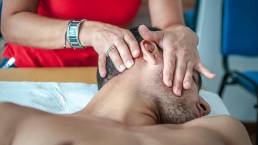How to Get a Good Nights Sleep
Getting good rest is essential to your health. Bad sleeping hygiene and interruption can be a contributing factor to a range of health issues including, obesity, anxiety, depression, slower reaction times and degraded memory.
We need to consider some of these useful tips for a restful sleep.
- Stick to sleep schedule of the same bedtime and wake up time. This helps with regulating the body clock
- If you find it hard to sleep at night then its best to avoid day time naps
- Daily aerobic type exercise is good but avoid exercising before sleeping
- Relaxing bed time ritual can be practiced for example listening to melodious music or meditating
- Have a comfortable mattress
- Temperature of room is important for sleeping. Depending on climate set room temperature to your comfort
- Room should be free from noise pollution to help with sleeping
- Caffeine, cigarettes and large meals should be avoided before sleeping
- Need to wind down before sleeping. Avoid use of electronic devises as the light emanating from the screens of these decides activates the brain by suppressing melatonin, a hormone that tells the brain to sleep.
- If you still can’t sleep, then its best to seek medical advice to find out what is causing you sleep difficulties
By Dr Cheran Ruben
- Bushnell PT, Colombi A, Caruso CC, Tak SW. (2010). Work Schedules and Health Behavior Outcomes at a Large Manufacturer. Industrial Health, 48 (4): 395-405.
- Caruso CC, Hitchcock EM. (2010). Strategies for Nurses to Prevent Sleep-Related Injuries and Errors. Rehabilitation Nursing. 35 (5): 192-7.
- Grosch J, Caruso CC, Rosa RR, Sauter SL. (2006). Long hours of work in the US: Associations with demographic and organizational characteristics, psychosocial working conditions, and health. American Journal of Industrial Medicine 49, 11: 943-952.
- Nakata A.(2011). Work hours, sleep sufficiency, and prevalence of depression among full-time employees: a community-based cross-sectional study. J Clin Psychiatry. May;72(5):605-14.
Related Posts
When you have one-sided neck pain, how would it influence other parts of your body?
20 May 2021
When you have one-sided neck pain, how would it influence other parts of your body?? If you have neck pain on one side, you might be able to imagine that the flexibility and strength of your affected side could be worse than the other. However, do you think that your other parts of the body, such…
0 Comments3 Minutes
Effect of Kinesiology Taping on Swelling and Bruising
27 July 2019
Fan taping with kinesiology tape can assist with acute soft tissue injuries resulting in swelling and bruising. A study found that the taping increases the space between two layers of skin and therefore forces the excess fluid to drain into the lymphatic system subsequently contributing to the…
0 Comments1 Minute


